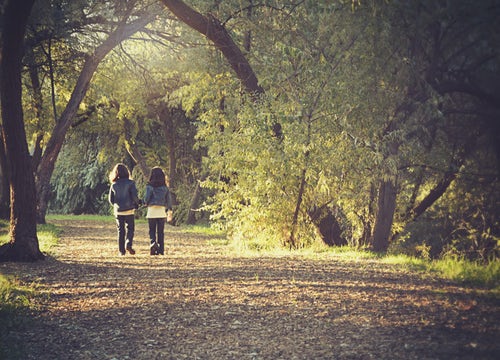
Forest Schools: Learning through Nature
Today, education is going through many changes. For example, last year saw the introduction of the 9-1 GCSE grading system (See: https://www.bbc.co.uk/news/education-44125336 ), and there’s now more sensitivity in schools where pupil’s personal problems are concerned ( See: https://www.bbc.co.uk/news/in-pictures-48955493 ). Despite a serious lack of funding in many schools today, the wellbeing and potential of pupils is still rightly the priority.
New, alternative methods of learning are also being acknowledged, and it is accepted that not all children excel in traditional schooling environments. However, these kids can persevere by doing all their learning elsewhere. Indeed, Home Schooling is one example, though not the focus of this article. Instead, it’s worth asking if forest schools can offer something unique in this regard?
What are Forest Schools?
Introduced 25 years ago, forest schools use the outdoors to help children who are not in mainstream education ( See: https://www.bbc.co.uk/news/av/uk-england-tyne-45776620/forest-school-uses-the-great-outdoors-to-aid-education ). They offer an alternative route to gain skills and interact with peers. Taught in peaceful woodland areas, the kids learn through a series of fun-filled activities that regular schools don’t provide. It’s a setup particularly useful for children diagnosed with mental or behavioural disorders, or those suffering with stress and anxiety. At forest schools they can escape the noise, judgement and pressure of society. As an alternative, the learning environment here is tranquil and accepting.
How do They Work?
Many children with learning difficulties can be tempted to be schooled at home entirely. However, getting outside is always a good thing. They’ll meet different people and get some fresh air. Home-schooling undoubtedly works for many families out there, but if it’s happening out of a sense of fear and rejection, problems can arise. Here at least they can have their own kind of fun and education with people just like them.
The popularity of these kinds of learning environments is picking up steam too, and it starts from an earlier age. A woodland nursery in Dorset is oversubscribed, for instance, with admissions until 2020, after being rated outstanding by the difficult-to-please Ofsted ( See: woodland nursery in Dorset is oversubscribed with admissions until 2020 ). There are no buildings at the Elves and Fairies Woodland Nursery, only nature that’s used for things like hide-and-seek, ball games, mud pits, collecting firewood and even a spot of (very basic, safe and carefully monitored) cooking. Their representative Kristeen Freer was interviewed by the BBC, proclaiming that these kinds of surroundings help children to “become very creative and imaginative in their play and in their learning”, further elaborating that they’ll never get bored in future.
It’s a different kind of self-sufficiency that’s good to learn from an early age. It can also go on to inform positive development in the future. As soon as they’re outside they can feel adventurous, intrigued and perhaps most importantly, themselves.
The Good and The Bad
Like all good things, however, forest schools are not without criticism. Some have put forward statements arguing they amount to little more than a quirky marketing gimmick: https://www.theguardian.com/education/2019/jun/25/forest-schools-more-marketing-than-outdoor-education . Others strongly disagree. Gareth Wyn Davies, Chief Executive of the Forest School Association (FSA), argues that forest schools are about “child-centred learning and engagement with the natural world […] children being guided by their own curiosity rather than completing tasks set by a teacher”. Some children have no control over the illnesses, disabilities and other problems they have. In such cases, forest schools can give them a sense of purpose, direction and fulfilment.
However, some businesses selling outdoor clothes are taking advantage of the clash. They claim that teachers can simply move their classes outside to become a forest school. Of course, this isn’t true, as this kind of education moves away from traditional curriculums and syllabuses. Forest schools are not just a cheap trend, but a way of life for vulnerable children. Therefore, it is also vital that forest schools are protected from such corporate opportunism.
Ultimately, for kids with special needs or acute stress and anxiety, a forest school is just what they need to maintain their self-esteem. These arrangements help kids to recognise value in themselves, each other and the natural world at large. Children can learn through play and realise that they’re more than whatever they’re struggling with. There’re no overwhelming pressures – just a very pure path forward that energises them and gives them hope.